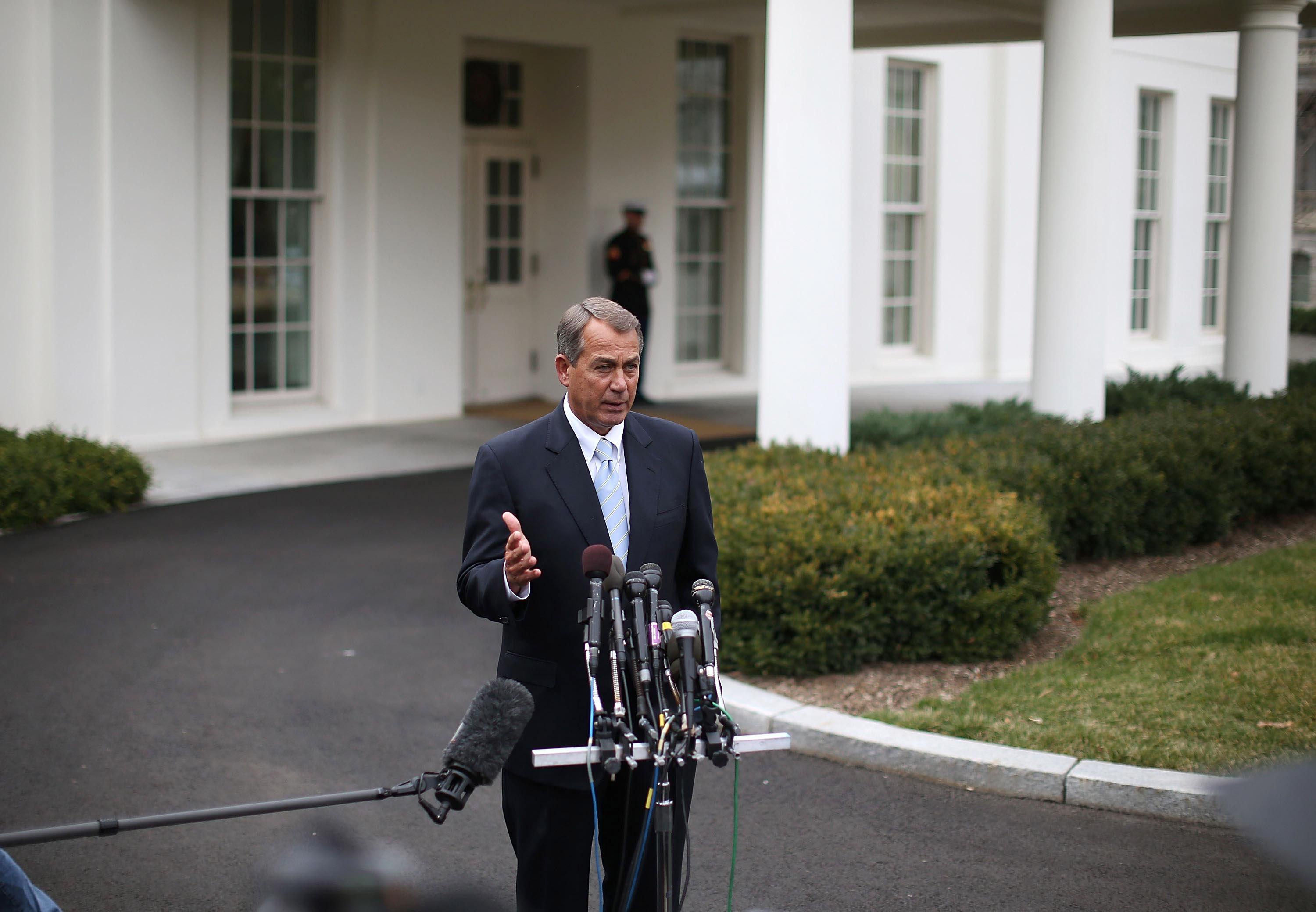CNN’s Dana Bash spent yesterday morning doing some solid ambush reporting that, really, other reporters should have thought to do. As members of Congress headed out of the Capitol, to the cars taking them to their preferred airlines, Bash asked them why they wouldn’t be around when the cuts hit. The most entertaining spin came from Rep. Richard Hudson, who won a gerrymandered seat in North Carolina least year, and argued that “the work we do there [at home] is more important, in my opinion, than the work we do here.” He’s been in Congress for two months!
This is an entertaining way into my story from the soggy conclusion of Sequestergeddon. Time and again in the Boehner era, Congress has acted out to prove its dogmas, gotten perilously close to crisis, then voted to empower the executive branch to fix the crisis. In December 2010, Republicans banned earmarking—something that cut no spending at all, but took away their tool for getting specific projects into bills. In the summer of 2011, they agreed to a debt deal that raised the debt limit through the presidential election, and created an end-run around their own rules, allowing a “supercommittee” to draft a plan that couldn’t be filibustered. And yesterday’s big Republican idea to fix sequestration was “flexibility”—a bill that would have allowed the president and agencies to shuffle their funding around, as long as they came up with ways to hit the sequestration cost targets.
